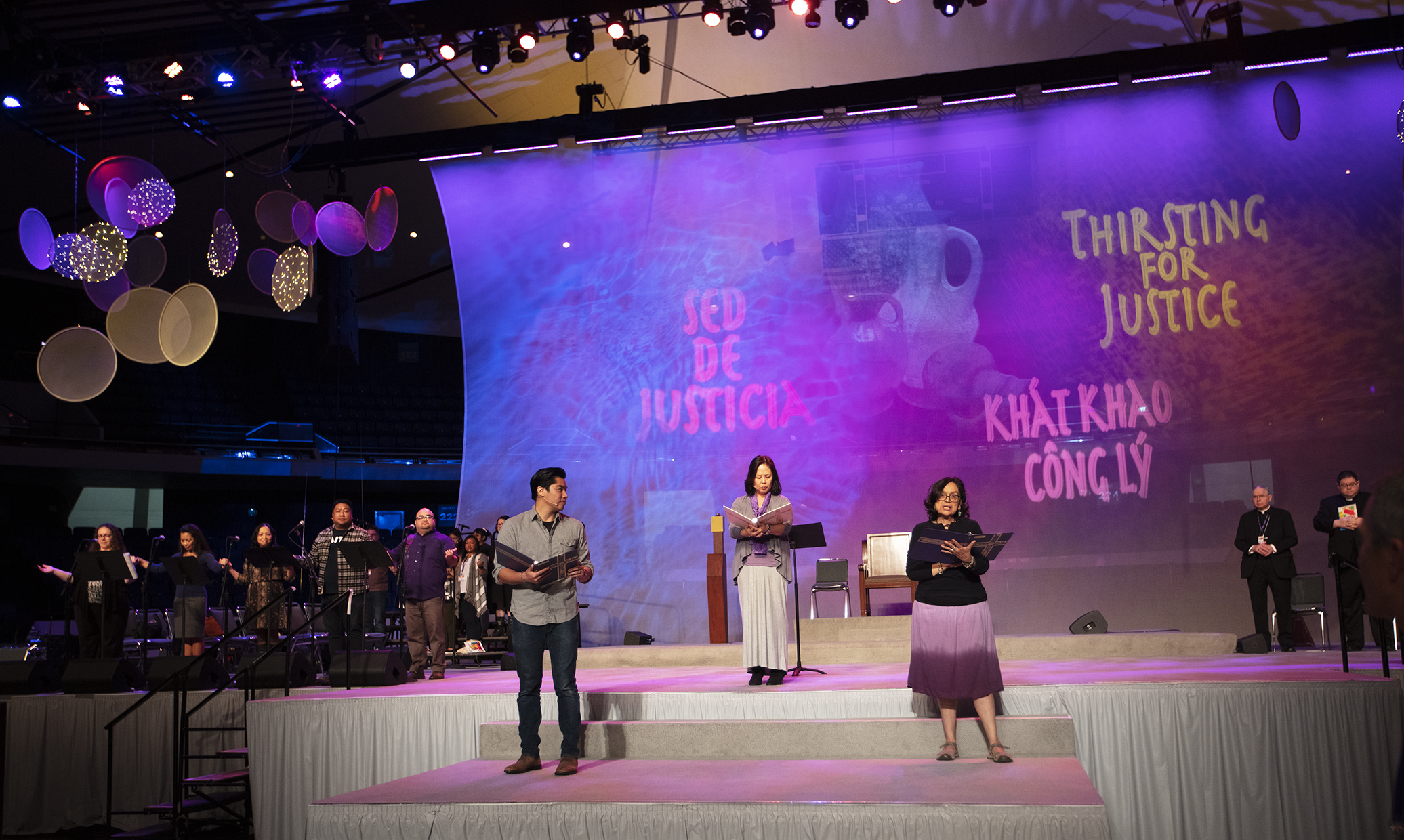Early childhood is a time of allowing children to experience God in concrete ways through what they can see, touch, taste, hear and smell. The human experiences of children form the basic content of their religious development.
Early Childhood Faith Formation is the process by which young children come to know God. Early Childhood Faith Formation is based on developing the child’s awareness of God using life experiences relevant to the developmental level of a preschool aged child: 3, 4 and 5. The child at this age learns to relate to the care and love of God through selfidentity, nature and the love of others.
Faith formation is an awakening process. This awakening has its beginning in early childhood and continues throughout the child’s, and ultimately the adult’s life. “The Church’s catechetical mission aims to help the faithful of all ages grow in both human and Christian maturity” (Our Hearts Were Burning Within Us, no. 64). The Early Childhood Faith Formation program focuses on teaching catechists HOW to help young children grow in their awareness of God God the Creator, God the Loving Parent, God the Friend, and The Wonderful World of God.
The early childhood philosophy primarily focuses on God. It is difficult for preschool aged children to understand suffering (such as the death of Jesus and His resurrection); therefore, great care is taken in selecting age appropriate stories for children at this age.
As far as the life story of Jesus is concerned, we suggest that preschoolers be told little (by way of formal teaching, that is) other than the simple story of his birth as a Gift to us from God our Father. We do not believe that young children should be told about the suffering and death of Jesus until they are old enough to understand something of the purpose of His coming and the meaning of the word Savior. Sr. Mary Irene Flanagan, C.S.J., (Early Childhood Minister at American Martyr Parish, frequent columnist for Catechist Magazine and first Early Childhood Consultant for the Archdiocese of Los Angeles), suggests that “the use of Bible stories that give a false impression of God, such as Old Testament stories telling of a vengeful God destroying people and things, should be avoided. Rather, a preschool aged child needs to experience and associate God with positive, joyful occasions”.
Early childhood is a time of allowing children to experience God in concrete ways through what they can see, touch, taste, hear and smell. The human experiences of children form the basic content of their religious development. Themes that are used to teach these concepts include: selfesteem, feelings & emotions, family, friends, community, senses, animate objects (animals, plants, fish, birds), inanimate objects (wind, air, light, earth), new life and various celebrations. These themes provide the opportunity for the children to experience God’s wonderful world. The experiences lay the foundations upon which faith can grow. Our philosophy in early childhood is to awaken the child’s faith, provide a strong foundation on which children can grow in the love of God, help children learn how God’s love is reflected in their everyday experiences, and through reflection on experiences in God’s world, initiate a spontaneous prayer life.
Finally, the Early Childhood philosophy supports the parents as the primary religious educators of their children. “Parents need to nurture in their children a love of God that can serve as an anchor throughout life” (Krock, p. 15). Therefore, it is critical that parents understand and live the philosophy as stated above. A parent’s role in the religious growth of his/her children extends far beyond formal teaching. It is in living the Christian message of love, day by day, before the eyes, ears and impressionable minds of little ones. Parents must be given opportunities to understand how they too can assist in their child’s developmental awareness of God.


